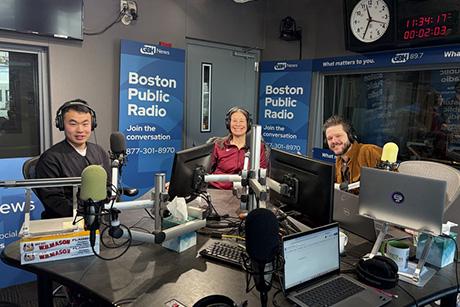Stephen H. Crandall, professor emeritus in MechE, dies at 92
Stephen H. Crandall, the Ford Professor of Engineering Emeritus at MIT, a pioneer in random vibrations and rotordynamics, and a leader in transforming mechanics into an engineering science, passed away Oct. 29, in Needham, Mass. He was 92 years old.
Crandall was born in the Philippine Islands in 1920. Graduating with a degree in mechanical engineering from Stevens Institute of Technology in the early days of World War II, he joined MIT as a staff member in the Radiation Laboratory in 1942.
After earning his PhD in mathematics from MIT in 1946, he transferred to the Department of Mechanical Engineering. There, he was appointed to assistant professor of mechanical engineering in 1947, associate professor in 1951, then to professor in 1958. He was named Ford Professor of Engineering in 1975, and an emeritus professor in 1991.
Across MIT, Crandall is remembered as an outstanding teacher and scholar, noted for the clarity of his lectures: He spoke slowly, but managed to cover plenty of material. While at MIT, he led the transformation of mechanics into an engineering science, acting as editor of three groundbreaking texts: “Random Vibrations” (1958), “An Introduction to the Mechanics of Solids” (1959), and “Dynamics of Mechanical and Electromechanical Systems” (1968). Crandall was a pioneer of random vibrations research, offering the first academic course on the subject in 1958, and subsequently directing MIT’s Acoustics and Vibration Laboratory for 33 years. He published a total of eight books and 160 technical papers.
Crandall was professionally active as an engineering consultant and a member of many technical societies. He served as chairman of the Executive Committee of the Applied Mechanics Division and as vice president of Basic Engineering for the American Society of Mechanical Engineers (ASME); he also served as president of the American Academy of Mechanics. He served as chairman of the U.S. National Committee for Theoretical and Applied Mechanics and of the Solid Mechanics Panel of the International Union of Theoretical and Applied Mechanics. He was also a member of the Board of the International Commission for Acoustics.
Throughout the years, a steady stream of students enjoyed the hospitality of Crandall and his gracious wife, Pat: They generously opened their house in Lincoln, Mass., to a variety of student groups. Their interest in teaching and supporting foreign students was initiated by their first sabbatical at Imperial College London in 1949 and reinforced by subsequent sabbaticals and lecture tours in Mexico, France, Germany, Israel, Russia, China, Japan, Australia, and South Korea. Crandall learned to speak Spanish, French, and Russian, and enjoyed giving lectures in the local language. Pat chaired MIT’s faculty wives committee, which organized English-language classes for the wives of foreign students.
Crandall’s hobbies included Dixieland piano, and he played gigs for many years with the Tabor Hill Jazz Band.
Crandall’s professional contributions have been widely recognized. He was elected to the American Academy of Arts and Sciences, the National Academy of Sciences, the National Academy of Engineering, and the Russian Academy of Engineering.
The Acoustical Society of America awarded him the Trent-Crede Medal in 1978, and the American Society of Civil Engineers awarded him both the Theodore von Karman Medal, in 1984, and the Freudenthal Medal, in 1996. ASME awarded Crandall the Worcester Reed Warner Medal in 1971; the Timoshenko Medal in 1990; the Den Hartog Award in 1991; and the Thomas K. Caughey Dynamics Award in 2009. He was inducted as an honorary ASME member in 1988.
Crandall is survived by his daughter, Jane (Crandall) Kontrimas, with her husband Peter and son Stephen; and by his son, William BC Crandall.
A memorial service will be held at the MIT Chapel on Friday, Feb. 21, 2014, at 3 p.m., followed by a reception at the Hart Nautical Gallery. If you are unable to attend, but would like to send a story or photograph to share at the service, please email MIT Faculty Affairs Administrator Marion Gross (meg@mit.edu).
In lieu of flowers, gifts in memory of Stephen H. Crandall may be made to MIT to support the Crandall Language Fund, which purchases instructional material for students, or the Crandall Fund for Study in Mechanics, which supports graduate students in mechanical engineering.
Please make checks payable to MIT and note the account: Language Fund (2162200) or Fund for Study in Mechanics (2175900). Checks may be mailed to: Bonny Kellermann, Director of Memorial Gifts, Massachusetts Institute of Technology, 600 Memorial Drive, W98-500, Cambridge, MA 02139. Gifts may also be made by credit card. Please indicate that your gift is in memory of Stephen H. Crandall.


